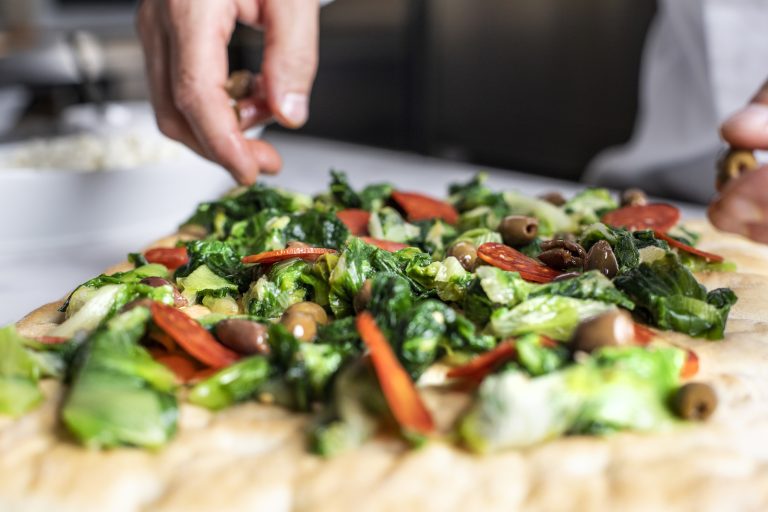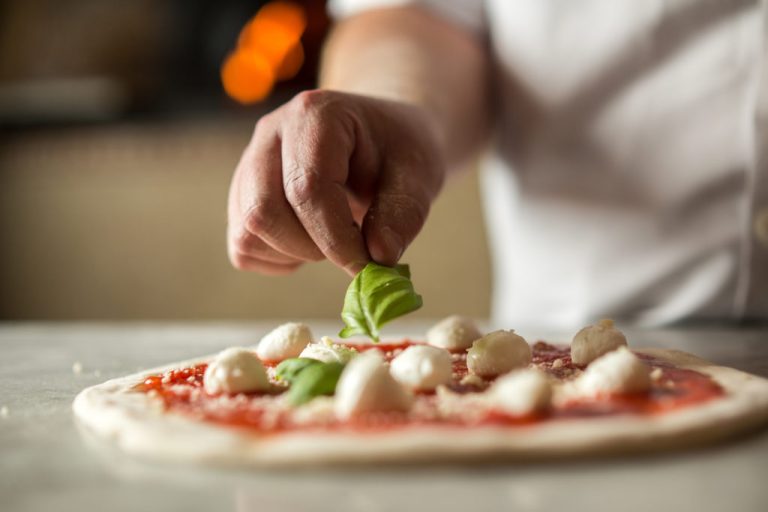Pizza in Pala and Roman style pizza are two typical styles from central Italy, particularly from the Lazio region. These are high-hydration doughs, simple in terms of preparation but with multiple variations that affect the structure, quality, and aesthetics of the desired product. The Italian School of Pizzaioli offers a two-day full immersion course to learn the main production techniques of both pizza styles, in the hydrated version, in the variant of classic soft pan pizza and focaccia. The course involves the use of different flours, with a particular focus on the latest generation of stone-ground, mixed cereals, and wholemeal flours in order to gain the right awareness of the raw materials to be mixed and learn all the possible nuances to customize the product.
The course is aimed at those who want to learn the various techniques of production, leavening, stretching, and baking of pizza in pala and in pans, both classic and hydrated. It is designed for professionals, pizzeria owners, and chefs who want to deepen the theory and practice needed to make two styles of pizza, highly demanded in the market, ideal as a gourmet base to enhance high-quality ingredients.
What You Will Learn
Complete professional preparation on various production techniques, preparation, stretching, and pre-baking of pala and teglia bases, using various types of flours and related kneading methods.
Duration
16 hours spread over 2 days: 2 hours of theoretical lessons and 14 hours of practical lessons.
From 9:00 AM to 5:00 PM
Language
Italian
Course program
Theory
2 Hours
- Pizza in teglia and its variations: thick and soft or thin and crispy. Its regional spread, evolution, and how to offer it to the public also in the stuffed version
- Pizza in pala, light and crispy. Defining the dimensions of pizza in pala and the appropriate weight
- Description of the equipment and smallwares necessary for pizza in teglia and pala
- Introduction to cereals and their differences: soft and hard wheat, their characteristics and the factors that determine their quality
- The most appropriate flours for pizza in teglia and pala: chemical/physical and rheological characteristics, proteins, carbohydrates, types of refinement and the use of raw flours and seed core
- Introduction to preferments: differences, suitable flours, and conservation methods
- Yeast: morphology, types of yeasts available commercially, its role in the dough, the action of yeast in relation to temperatures and their usage percentages
- Optimization of doughs: creating multiple products with the same dough (bread and breadsticks) to reduce waste in the pizzeria
Practice
14 Hours
- Direct dough with short leavening for making pizza in teglia and pala
- Indirect dough for various types of teglia, pala, and focaccias
- Preparation of preferments at controlled and room temperature
- Use of alternative flours
- Optimization of doughs by creating multiple products, as a tasty and sustainable alternative to combat waste in pizzerias
- Leavening and stretching
- Oven calibration for pre-baking and final baking
- Management of toppings and development of traditional and innovative recipes

